Palm plants are an instant way to add lushness to an indoor space. Their gorgeous tall fronds add elegance and distinctly tropical vibes.
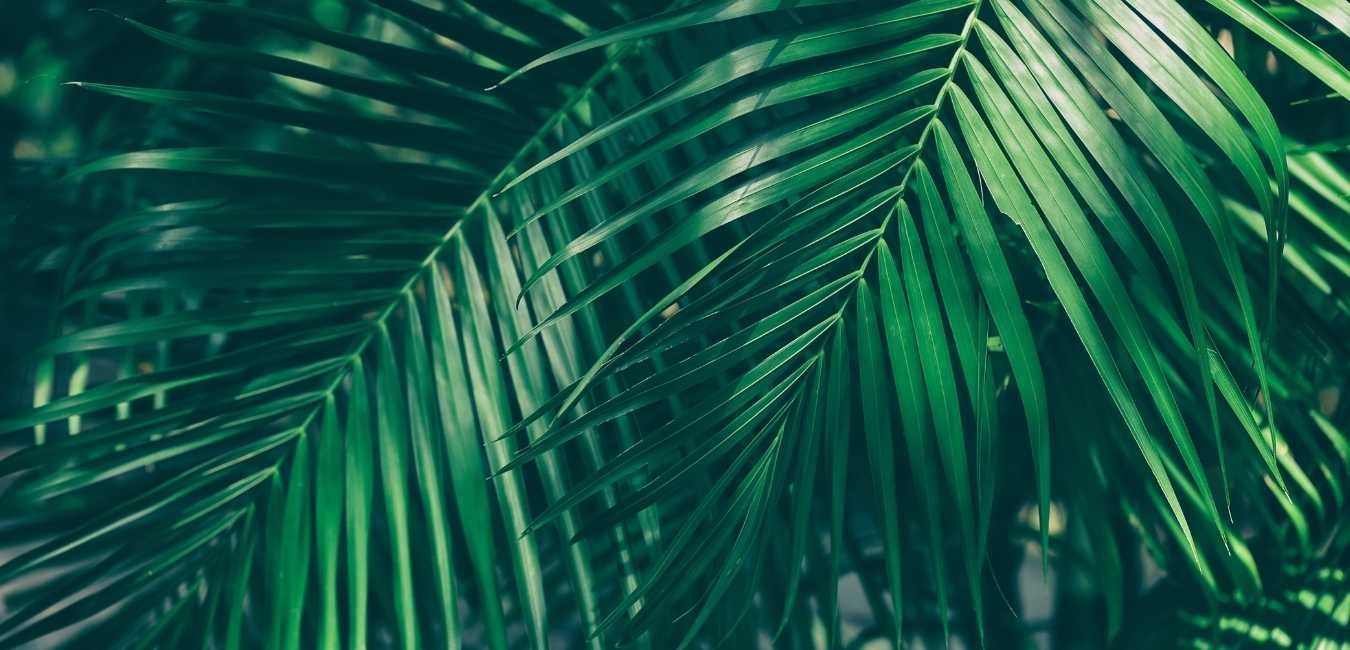
PALM
Varieties from our listing
Interested to buy a plant from this group?
See what we have available HERE
Below is a general care guide for indoor Palm plants which can slightly differ depending on variety.
Light & Temperature
Palm plants can easily adapt to low-light indoors but will thrive in medium to bright, indirect light. Most palms are shade-tolerant or prefer the shade, and will not do well in direct sunlight. Most palms like warm temperature but some popular indoor palms like the kentia and parlor palms can withstand cold temperatures.
Watering, Humidity & Misting
Palm plants can handle being underwatered but they will grow their best when watered on a regular basis. It prefers evenly moist soil but wants its soil to slightly dry out between waterings.
Keeping the humidity high around the plant will help fend off pests. Mist your palm plant occasionally.
Soil and Repotting
The ideal soil for potted palm trees is a loose, porous soil mix. They will also grow just fine in a general purpose houseplant potting mix.
Only repot a palm when its is completely root bound. Palms usually have shallow root systems that do not like being disturbed.
Propagation
Most palms propagate by air layering, cuttings, and division. For palm trees, the best way to propagate is from seed.
Fertiliser
Use a balanced fertiliser formulated for houseplants. Follow the directions on the label of our Down to Earth. organic plant food. Potassium deficiency is common among palms which might require you to add extra potassium occasionally.
Toxicity
Areca, Parlor and Ponytail palms are non-toxic. However, other varieties like Sago or Cycad palms are toxic and should be kept away from kids and/or pets.
Possible Issues
Under the right care and conditions, your plant will grow happy and healthy. But here are some issues you may encounter while caring for an indoor Palm:
Scales, mealybugs and spider mites - When spotted, treat with insecticidal soap or neem oil.
Brown leaves, spots or tips - Brown tips can be caused by under watering and cold air while brown spots can be due to overwatering. Adjust your care routine accordingly. Browning of lower leaves is natural. Simply cut back these leaves to encourage new growth.
Yellowing leaves - This is can be due to overwatering. Remove the damaged leaves and adjust the conditions and care given.
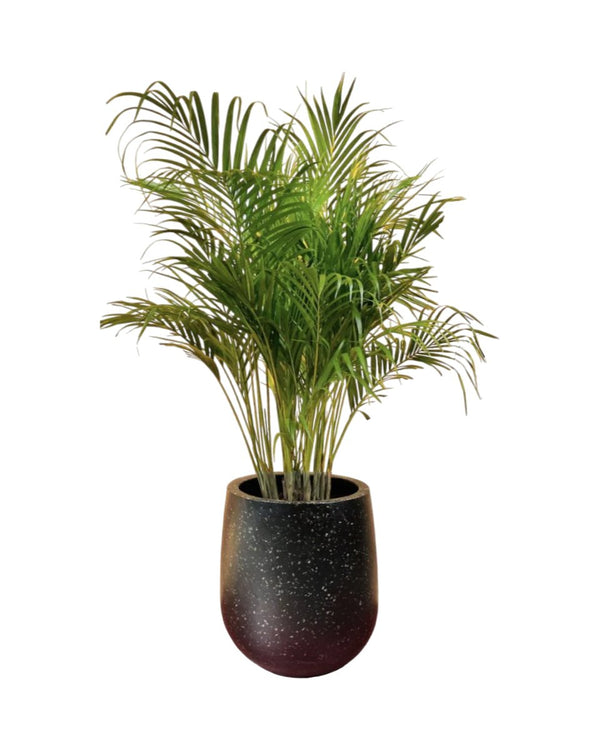
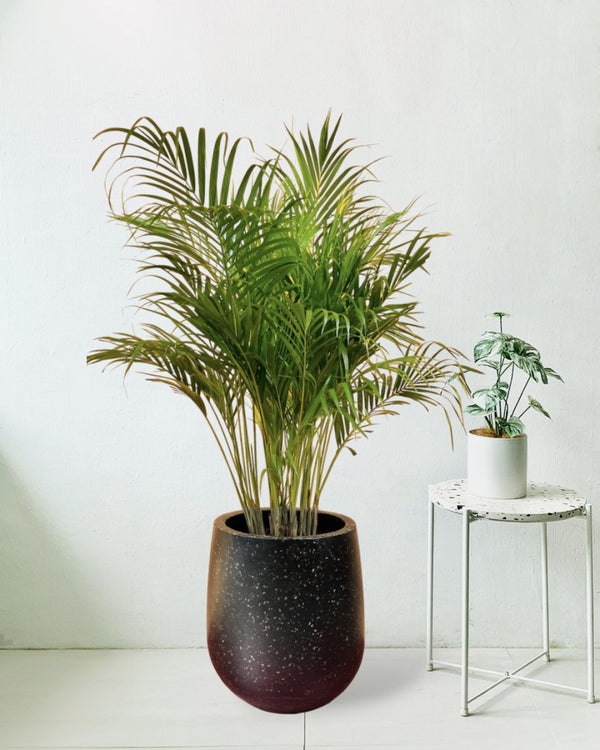
- Regular Price
- from $55.00
- Sale Price
- from $55.00
- Regular Price
- Unit Price
- per
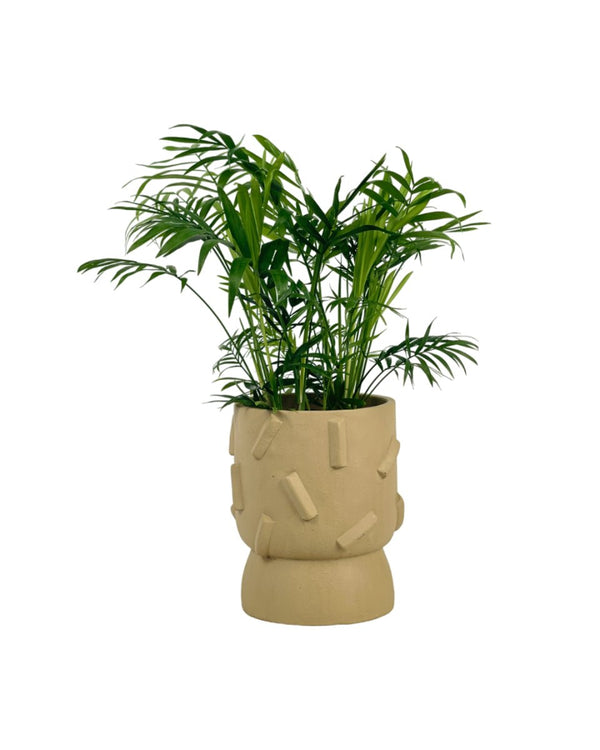
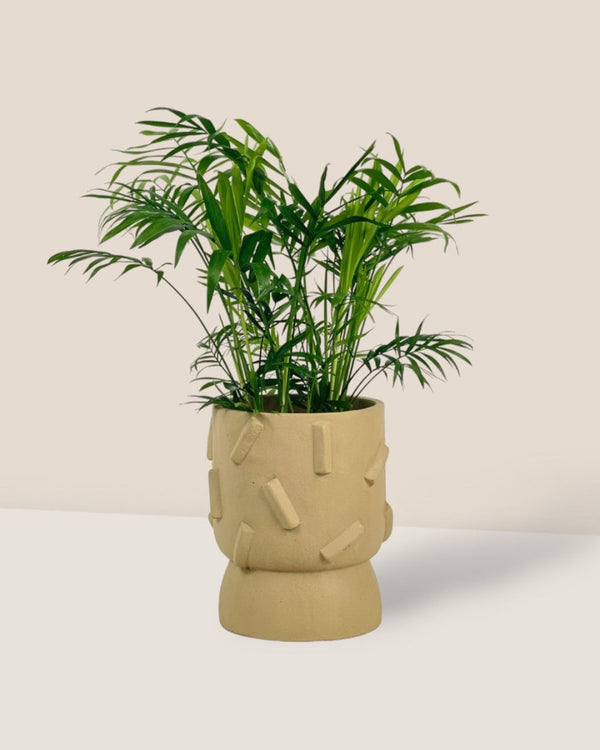
- Regular Price
- from $10.00
- Sale Price
- from $10.00
- Regular Price
- Unit Price
- per

